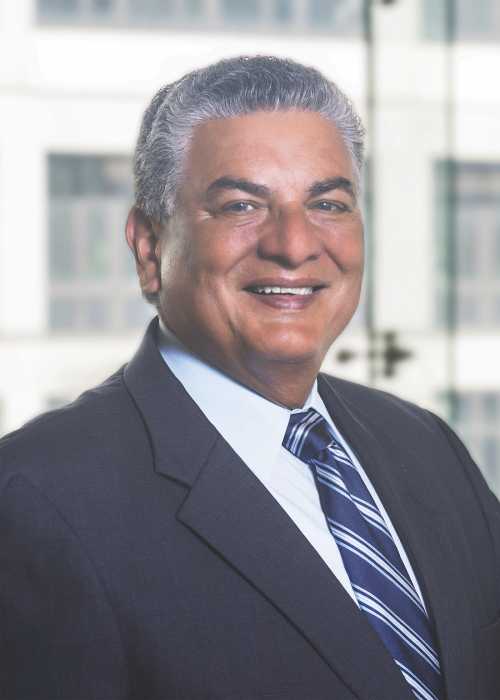Dr. Milton Santiago joined New York City College of Technology as interim president in July 2025. An accomplished leader in public higher education, he brings over 30 years of senior leadership experience across CUNY and beyond, including interim president of Bronx Community College. Dr. Santiago has championed student-centered college governance, career-connected educational programs and technological upgrades. He has also held leadership roles at CUNY’s Lehman College, CUNY’s College of Staten Island, Westfield State University and Bunker Hill Community College, and has served on national higher education associations. Dr. Santiago holds a B.A. from Binghamton University, an MSW from New York University and an Ed.D. from the University of Massachusetts-Boston.
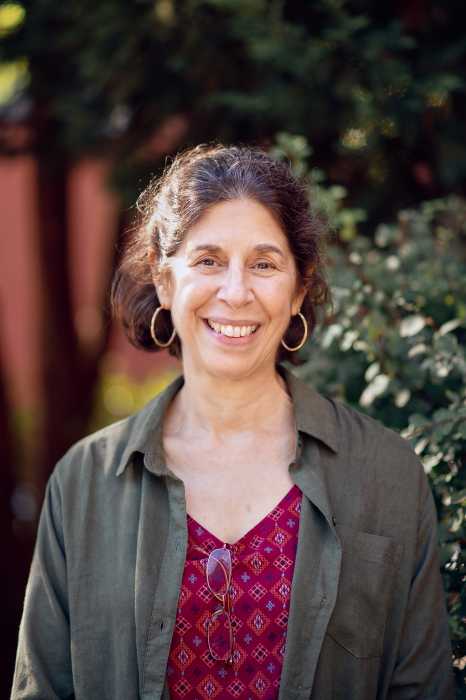
Dorothy Savitch
Director of Music Partners and Director of the Brooklyn Conservatory Community Orchestra, Brooklyn Conservatory of Music

Dorothy Savitch has led the Music Partners program at BKCM since 1996, developing fully enriched, sequential music education programs at schools, youth centers, senior centers and other community organizations across NYC. Under Dorothy’s guidance, Music Partners has grown from six sites with 700 students to 35 sites with nearly 4,000 participants. Since 2002, Dorothy has also led the Brooklyn Conservatory Community Orchestra. She received music degrees from Columbia University and Queens College.
How has the educational landscape changed in recent years and what are your hopes for its future?
Today, there is less time in the school day for arts education and less funding for the arts, while at the same time our school partners are under tremendous pressure to raise reading and math scores – and keep children safe! My colleagues and I are more passionate than ever about the value of arts education, and we’re more determined to help build communities that have music in schools every day.
What do you most enjoy about working in education?
What could be better than being a music educator? We are sharing what we love the most – music! – with young people, helping them to develop their aural, motor and emotional skills while building community through bands, choruses and orchestras. I love working with our teaching artists in the Brooklyn Conservatory’s Music Partners Program, who are world-class musicians and deeply creative and dedicated instructors.
As this year comes to an end, what are your goals for 2026?
Though we are now five years away from the pandemic, there’s no question that many children – especially those in middle school and high school – have been deeply affected by that trauma. Each year since then, we’ve explored new ways to engage and inspire our students. Our goals this year are to deepen student commitment, increase retention and create multiple performance opportunities for our music students to show off their skills!
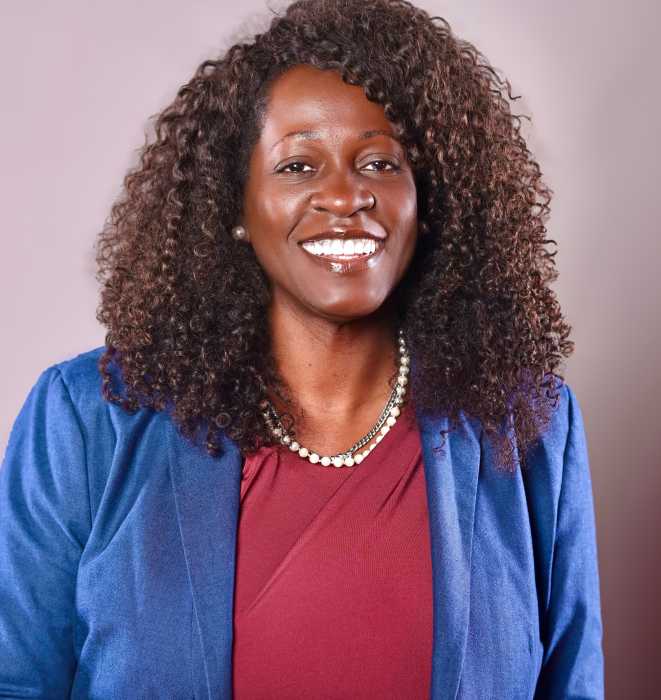
Claudia Schrader
President, York College, CUNY

The City University of New York appointed Claudia V. Schrader as president of York College, effective as of May 1st, 2025, making her the eighth president of the Jamaica, Queens, college. A veteran CUNY educator, Schrader has brought energetic and innovative leadership to four of its campuses during her two-decade career with the University. President Schrader has received several awards for her work as president and in community services.
How has the educational landscape changed in recent years and what are your hopes for its future?
The pandemic reimagined access to higher education when it moved teaching and learning online. Relatedly, increased engagement in the digital world has also resulted in an increased use of AI, educational technology, and data analytics to support teaching, learning and higher education as a whole. Education needs to become more global in its approach by promoting experiences that foster respect for differences and embrace diversity in all its forms.
What do you most enjoy about working in education?
I enjoy engaging with students, learning about them and watching them blossom into even more dynamic human beings. Of particular joy is observing the mentor/mentee relationships between faculty and students. Not only do these relationships help students to grow professionally, but it further inspires faculty in their work as teachers, researchers and mentors.
As this year comes to an end, what are your goals for 2026?
My goal is to ensure that anyone who wants to use education to transform their lives knows that York is the vehicle that takes them there. I am committed to increasing enrollment, retention and graduation rates and positioning York as a well of opportunity in Southeast Queens and beyond.
Rev. Brian J. Shanley
President, St. John’s University
Rev. Brian J. Shanley, O.P., is the 18th president of St. John’s University. Since he arrived in Queens in the Winter of 2021, he has taken bold steps to elevate St. John’s. He launched a Strategic Plan, closed the Staten Island branch campus, added a Nursing program, hired Hall of Fame Basketball Coach Rick Pitino, built and opened the $106M St. Vincent Health Sciences Center, and strategically planned significant fundraising initiatives for the future.
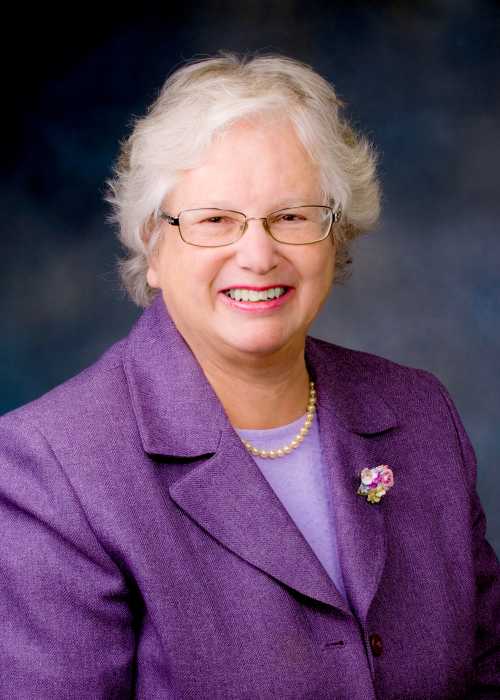
Toby Stavisky
Senator, New York State Senate | Chair, Committee on Higher Education

Senator Toby Ann Stavisky is the first woman from Queens elected to the State Senate. She is vice president pro tempore of the Senate and chair of the Higher Education Committee. A Bronx High School of Science alumni, she taught high school social studies before entering public service. Senator Stavisky is recognized for her leadership in education, social justice, and community advocacy. She was married to Leonard Stavisky and has one son and a daughter-in-law.
How has the educational landscape changed in recent years and what are your hopes for its future?
Federal budget cuts and policy changes have brought devastating cuts to research in higher education. Grants that once advanced groundbreaking discoveries are now questioned. This is a shocking departure from academic inquiry. Higher education is under attack, with more focus on lawsuits than learning. My hope is that students, faculty, and institutions are protected so they can thrive and continue serving the public good.
What do you most enjoy about working in education?
I began my career as a high school social studies teacher, and that passion never left me. Today, I enjoy shaping policy, resolving challenges, and seeing the impact firsthand when I visit campuses. Meeting students, faculty, and stakeholders reminds me why this work matters. I am delighted that we have been able to increase the state’s share of the cost for our public colleges. I hope we will continue to do so in the future.
As this year comes to an end, what are your goals for 2026?
My first priority is restoring federal support that has been stripped from higher education. I also want to protect our colleges so they can remain focused on educating the next generation. Our students deserve the very best opportunities to earn degrees, secure good jobs, and keep their talents here in New York. That is how we strengthen our state’s future.
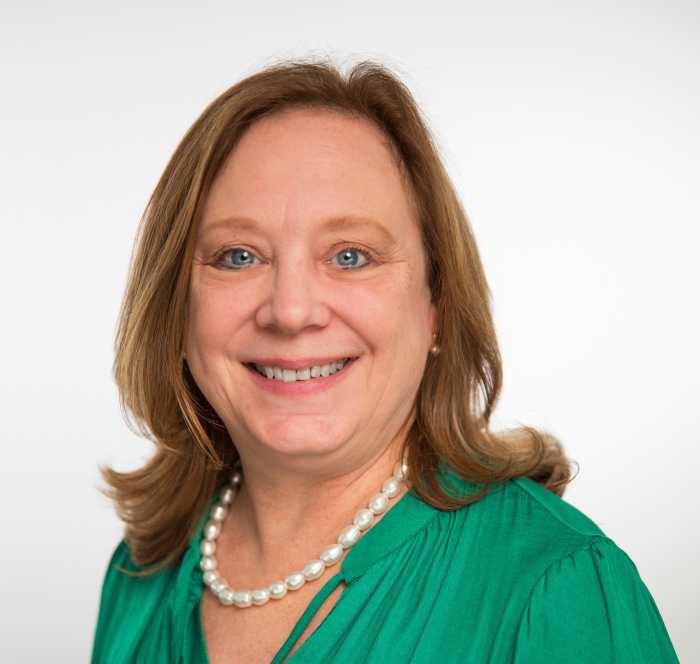
Donna Stelling Gurnett
President, Association of Private Colleges

Since 2013, Donna Gurnett has served as president of the Association of Private Colleges (APC), representing 12 degree-granting, primarily family-founded colleges across New York State. Under her leadership, APC has been a strong advocate for educational excellence, access, and affordability. She has guided the organization’s efforts to advance fair and equitable policies at both the state and federal levels, ensuring that New York’s private colleges – and the students they serve – continue to thrive.
How has the educational landscape changed in recent years and what are your hopes for its future?
In recent years, we’ve seen a growing recognition that higher education must be more flexible, inclusive, and responsive to the needs of today’s students; many of whom are balancing work, family, and financial pressures. My hope for the future is that we continue to move toward a higher education system that values outcomes over tradition. One that supports all learners and ensures that affordability and access remain at the forefront of every policy conversation.
What do you most enjoy about working in education?
What I enjoy most about working in higher education is the opportunity to make a tangible difference in people’s lives. Education opens doors, creates opportunities, and strengthens communities. Every day, I have the privilege of working with institutions that are deeply committed to helping students succeed, often against great odds. Seeing the impact our colleges have on students, families, and local economies is incredibly rewarding and continually reinforces why this work matters so much.
As this year comes to an end, what are your goals for 2026?
Looking ahead to 2026, my goals center on strengthening the voice of New York’s proprietary colleges and the students they serve. We will continue to advocate for policies that expand access and drive innovation in higher education. I’m also focused on amplifying success stories and ensuring that affordability and student outcomes remain at the heart of everything we do.
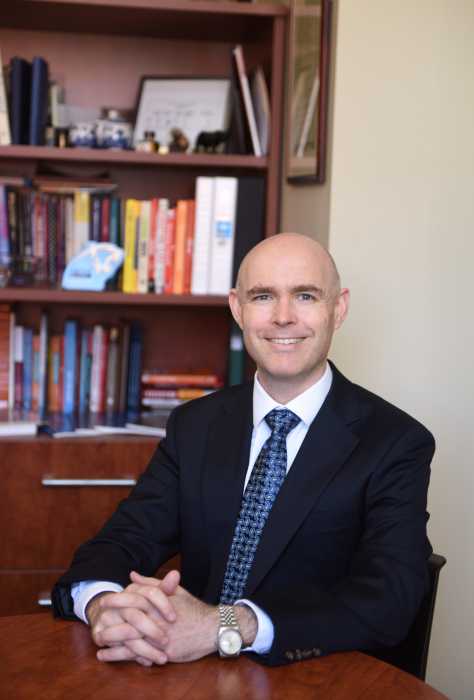
Chris Storm
Interim President, Adelphi University

Chris Storm, Ph.D., is a scholar, professor and leader of the Adelphi University academic community for the past 18 years. He has championed key strategic initiatives during his career, such as the creation of the Scholars Pursuing Arts, Research and Knowledge (SPARK) Center, which embeds research into the undergraduate student experience. He also relaunched the University’s Innovation Center under new leadership and direction, transforming it into a vibrant hub of cross-disciplinary education and collaboration.
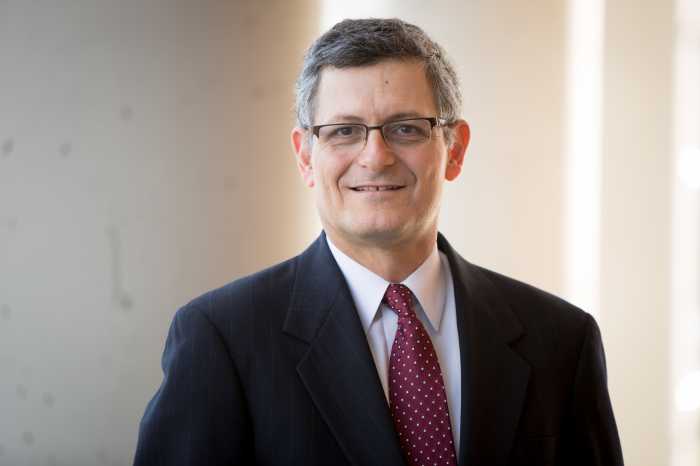
Yaron Tomer
The Marilyn and Stanley M. Katz Dean, Albert Einstein College of Medicine | Chief Academic Officer, Montefiore Einstein

Yaron Tomer, M.D., is the Marilyn and Stanley M. Katz dean at Albert Einstein College of Medicine and chief academic officer at Montefiore Einstein. He leads Einstein’s research-intensive medical school and partners with Montefiore to deliver compassionate, science-driven care. As a researcher, he focuses on better understanding diseases like thyroid autoimmunity and type 1 diabetes. Dr. Tomer earned his M.D. from the Gray School of Medicine of Tel Aviv University and trained in endocrinology.
How has the educational landscape changed in recent years and what are your hopes for its future?
Technological advances, including new Artificial Intelligence platforms, have transformed medical education in recent years. My hope is that they will continue to support and enhance medical education, opening doors to innovative ways to teach biomedical sciences and clinical reasoning. In the context of these technological advances, I remain fully committed to instilling in our students the timeless fundamental principles of medicine – compassion, empathy, trust, and a deep commitment to the well-being of our patients.
What do you most enjoy about working in education?
I enjoy learning from our students the most. They are brilliant, compassionate, altruistic, and aspiring to make the world a better place. Every week I have open office hours when I meet with students to discuss any topic they wish. These meetings are extremely helpful for me to get to know the students better and I am always amazed at their dedication to doing good in the world.
As this year comes to an end, what are your goals for 2026?
My goals for 2026 are to continue implementing Einstein’s five-year strategic plan for education (2025-2030), focusing on enriching the learning environment to nurture and prepare future physicians and scientists, expanding student learning about cultural awareness and health equity, and growing our educational programs.

Joel Towers
President and University Professor, The New School

Joel Towers became The New School’s president in August 2024. An architect and member of the full-time faculty since 2004, his extensive experience at The New School includes a decade as executive dean of Parsons School of Design. In that role and others at the university, he has worked to advance education, research and creative practice, integrating bold design, policy and collaborative approaches to advance social and ecological resilience.
How has the educational landscape changed in recent years and what are your hopes for its future?
Education is under attack. How did education, which is foundational to a functioning democracy, become such a political football? Political ideology is the answer. My hope, and my work, moves education beyond ideology, focusing on the challenges of our time, including climate change, technology and declining democratic norms. These challenges can’t be wished away; they are not hoaxes. Science doesn’t lie, and education must not be distracted by a shifting political landscape.
What do you most enjoy about working in education?
Like many who come to work in education through the lens of the arts, design and creative practice, I am deeply motivated by teaching and working with students. There is a reciprocity between preparing the next generation to excel in the performing arts or design and transformative innovation in those fields. The same can be true across the liberal arts and social sciences and The New School inspires precisely that kind of exploration and learning.
As this year comes to an end, what are your goals for 2026?
I’m focused on the future of the institution. In 2026, that means completing a structural redesign of the university to unleash the untapped potential of working in collaboration across disciplines. The New School is home to the top design school in America (Parsons) and world-renowned programs in music (Mannes, Jazz), drama, media and the social sciences. We are bringing these together with business and innovation (again, Parsons) and the liberal arts at Lang College.
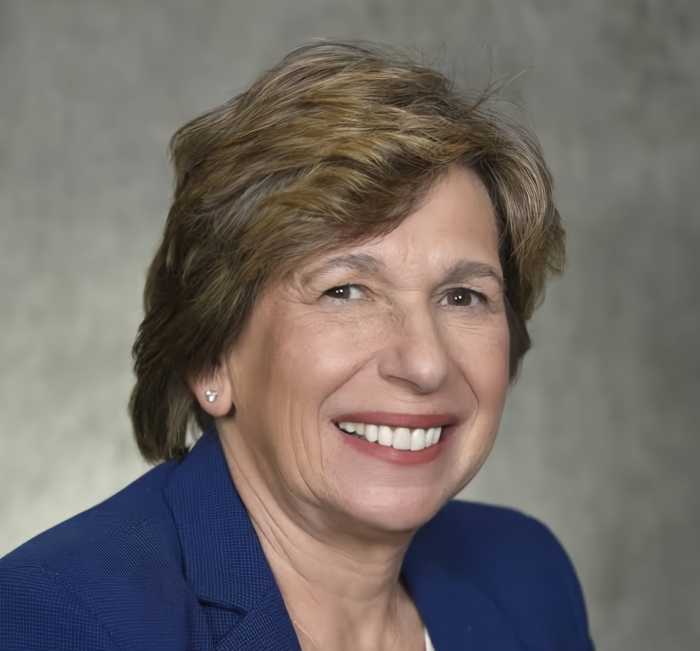
Randi Weingarten
President, American Federation of Teachers

Randi Weingarten is president of the 1.8 million-member AFT, which represents teachers; paraprofessionals and school-related personnel; higher education faculty and staff; nurses and other health care professionals; and government employees. The AFT is dedicated to the belief that every person in America deserves the freedom to thrive, fueled by opportunity, justice and a voice in our democracy. A former social studies teacher, Weingarten is the author of the New York Times best-selling book, Why Fascists Fear Teachers.
How has the educational landscape changed in recent years, and what are your hopes for its future?
Public schools have historically had bipartisan support, but increasingly it’s Democrats who are with us in the fight to strengthen public education, whereas many Republicans have abandoned public schools in favor of vouchers. I wrote Why Fascists Fear Teachers to explore why extremists relentlessly attack public schools and teachers. A conservative activist revealed their plan: To get universal vouchers, they must create universal distrust in the public schools. But we join with parents in wanting every public school to be a place where parents want to send their kids, educators want to work and kids thrive. That starts with funding, ensuring classrooms and campuses are safe and welcoming, and offering a curriculum that is relevant and engaging.
What do you most enjoy about working in education?
I am in classrooms every chance I get. I enjoy seeing kids’ joy and discovery, and watching teachers support and inspire them. I love going to career and technical education classes where students engage in hands-on learning that opens doors to good jobs and higher education. Even though it’s harder to get up off the floor these days, I love sitting on a carpet and reading with our youngest students. Anybody who knows me knows I just love being with kids and their teachers. Public education is how you expand opportunity for all young people. It’s how you change a nation.
As this year comes to an end, what are your goals for 2026?
There are many. We have to address how social media impacts students’ attention, memory, test scores and isolation. We have to confront the divisiveness, dehumanization and cruelty that don’t stop at the schoolhouse door. We have to protect all our kids, including our immigrant kids. And we must strengthen, not abandon, public education as well as build support for strong public schools that advance individual opportunity, our collective prosperity and the survival of our democracy.


